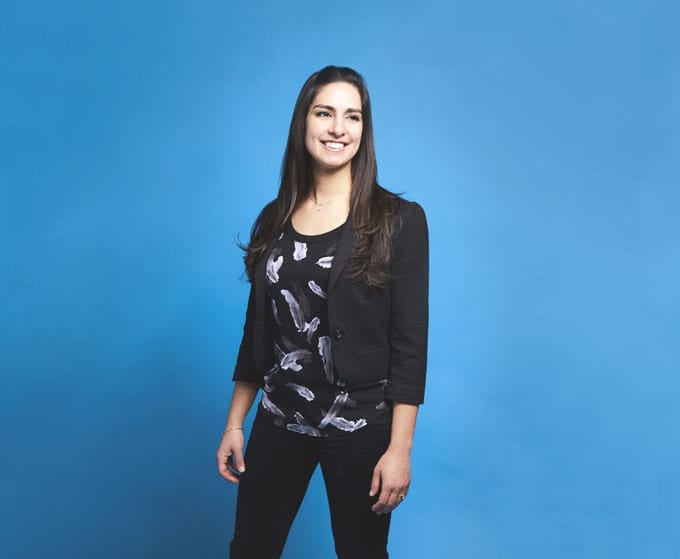Ihave been playing sports for as long as I can remember. After college, I recognized the tremendous impact that the opportunity to play sports had on me. So while working in finance operations at an established investment bank in New York City, I volunteered to coach a middle-school girls’ basketball team. Watching their skills and confidence develop made me realize that I wanted to dedicate my career to providing opportunities for kids to learn and play sports.
I made the leap to a nonprofit youth basketball organization because I believed in the organization’s mission but saw that it was standing on shaky ground. I made drastic changes to create a stable operation that could support the program’s growth, but I knew I needed more in-depth knowledge across many business areas.
That led me to Wharton, and my time there was transformative. I wore many hats at the small organization, and the Executive MBA program allowed me the flexibility to pick the courses that would provide the most benefit. An unexpected lesson came from our Global Business Week in South Africa. Our class visited Philani, an organization that found a sustainable way to provide health-care services and financial independence for mothers despite local infrastructure challenges. I had already found my calling in the nonprofit world of youth sports, but Wharton encouraged me to look for ways to expand my impact.
Midway through the program, in 2016, I joined Volo City, which provides free community youth-sports programs through adult social sports. I’m the executive director of its foundation, and in the past three years, we’ve grown from serving 120 kids in Baltimore to serving more than 9,000 kids in six cities across the country. We’ve also developed hundreds of coaches by training our adult league players who want to impact the next generation of athletes.
My Wharton experience enabled me to offer more value to the business side of small but rapidly growing Volo City than a foundation director might normally provide. Professor Christian Terwiesch’s Applying Operations Management course teaches the importance of standardizing what top-performing employees do to get results. So when I approached each of our markets to integrate programming, I was also able to facilitate conversations about operational best practices between the cities. These conversations with city directors helped make our organization more efficient.
In helping Volo City grow from startup to sustainable, it’s been powerful to see firsthand what kind of impactful change is possible. We want to live in a world where every child has the opportunity to play sports. The Volo City Kids Foundation will continue to provide free, high-quality youth programs until that hope becomes a reality. —Nayla Bautista WG17
Published as “Good Sport” in the Spring/Summer 2019 issue of Wharton Magazine.


























